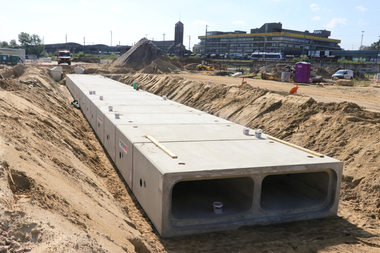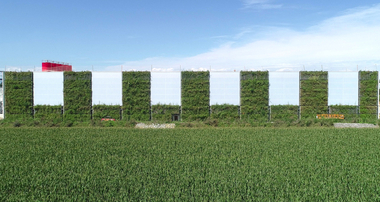Urban flash floods
The growing number of heavy rainfall events sensitizes citizens and local authorities even more. Locally extreme precipitations, without any appreciable prior warning, lead to high damages to buildings, infrastructure and the designed nature in urban space. Meanwhile, flood damages account for 50 % of these damages. The existing drainage facilities are not able to take up rare heavy rainfall events, thus flooding streets, basements and other facilities. Private individuals and private institutions often do not have the specialized information and, therefore, they trust in public drainage...





